New Studio Ghibli collection includes a US$2,450 wooden Totoro 【Video】
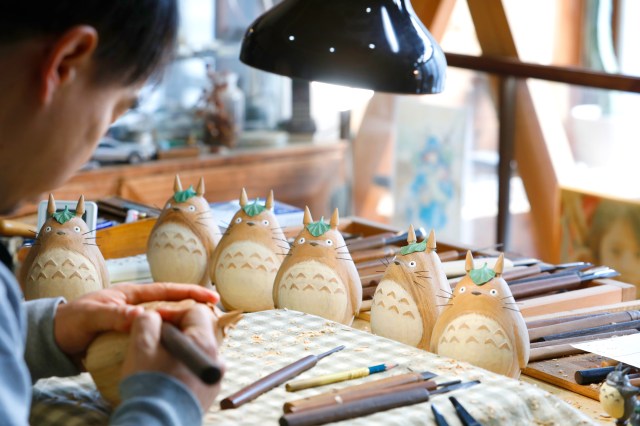
When the worlds of traditional Japan and Japanese anime collide.
Studio Ghibli is no stranger to collaborating with companies for unique collections — most recently, the anime studio teamed up with Tomica for a range of miniature toy vehicles, and luxury Spanish fashion brand Loewe for a Howl’s Moving Castle collection.
Now there’s a new collaboration coming our way, and this time it’s Japanese craft specialists Nakagawa Masashichi Shoten who are on board, bringing centuries of experience to the table for a stunning new range of goods.

Nakagawa Masashichi Shoten started in the hemp fabric industry in Nara back in 1716, and their dedication to handmade goods continues to this day. According to the company, it was this common “love for handwork” that attracted the interest of Studio Ghibli, a studio famous for its hand-drawn anime, and Totoro from the Ghibli movie My Neighbour Totoro was chosen to be the star of this new collection.
▼ The Japanese in bold print below reads: “Ghibli and Craft“
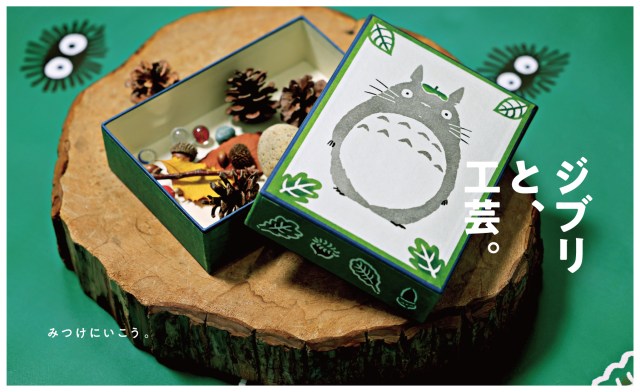
Nakagawa Masashichi worked with craftsmen from all over the country to curate the special collection, which is designed to convey the setting of “Totoro’s Forest”.
As you might expect, handmade products like these come with a slightly higher price tag than usual — the Yatsuo Washi Stencil Dye Treasure Box above, for example, is made by Keijusha, which makes stencil-dyed Japanese paper in Yatsuo, Toyama Prefecture, and is priced at 5,940 yen (US$44.29).
The other items in the collection are just as beautifully handcrafted. The Hizen Yoshida ware single vases below show the beauty of this famous craft from Saga Prefecture.
▼ The palm-sized vases are priced at 4,180 yen each.
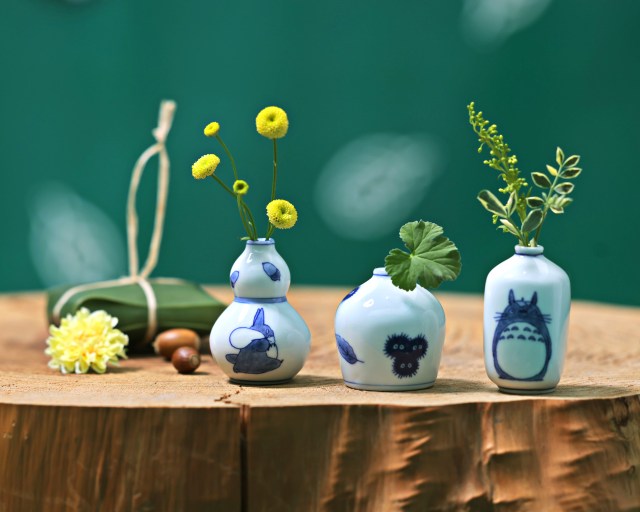
The spotlight on handmade pottery continues with the “Donguri-zara” (“Acorn Plates”), which showcase the distinct styles from three of the country’s most famous pottery-producing areas.
▼ Left to right: Arita Ware Acorn Plate, Seto Ware Acorn Plate, Mino Ware Acorn Plate (all 2,200 yen each)
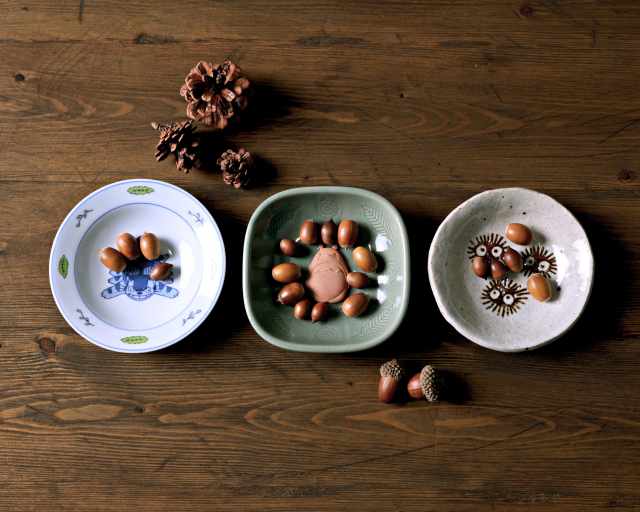
Next up is a Totoro Charm Bell made by the Kashiwagi Art Casting Research Institute. This item draws on the tradition of Odawara casting, which has a long history that stretches back to the Muromachi period (1336-1573).
▼ “Totoro Brass” and “Totoro Black” (1,980 yen each)
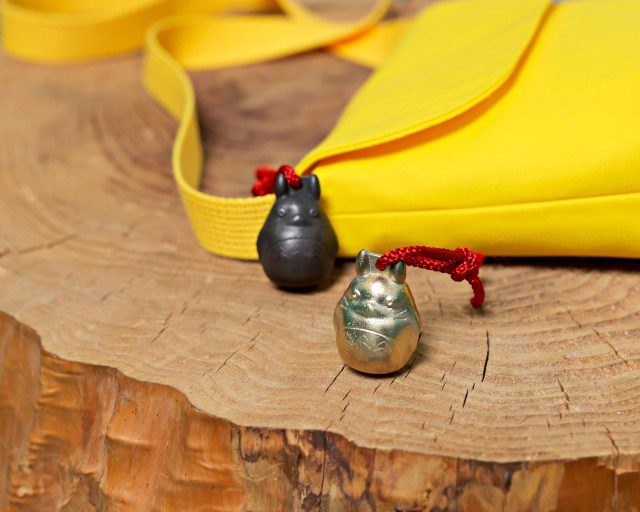
Chusen, a traditional Japanese dyeing technique, has been used to create a couple of beautiful T-shirts, which are designed so they have no “front” or “back”. This isn’t just handy for visually impaired people, it’s also handy for those who want to switch up whether they wear the design across their chest or back on any given day.
▼ The T-shirts are priced at 5,500 yen each.
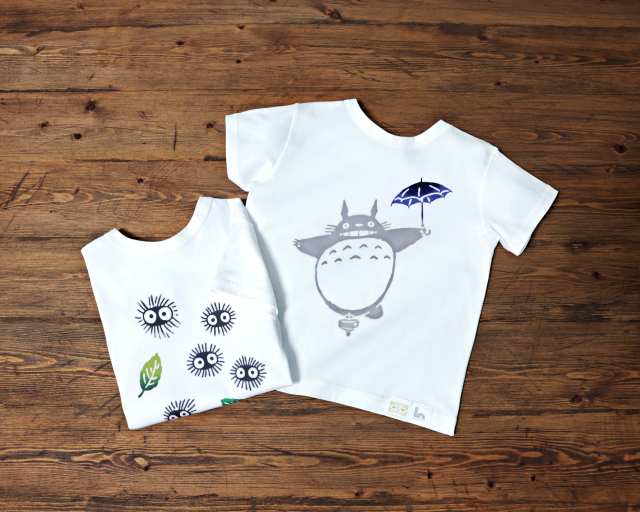
The Chusen dyeing technique has also been used to create a couple of beautiful tenugui handkerchiefs (880 yen each), adorned with motifs from the opening and ending scenes of My Neighbour Totoro.
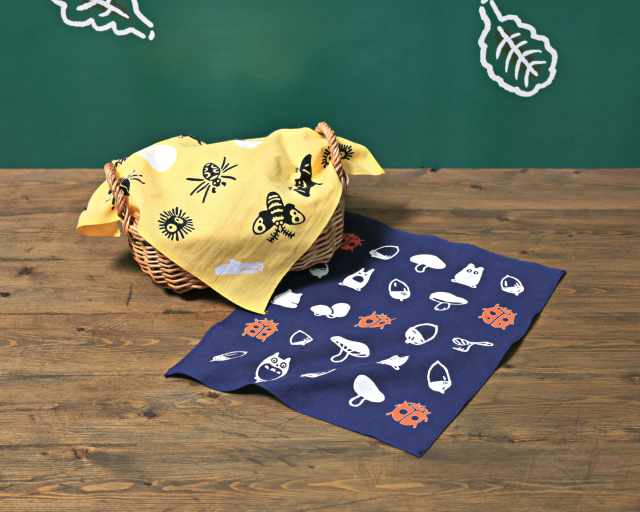
The collection includes a number of dish towels made with woven cloth and illustrated in watercolour-esque designs, giving them a handmade look that makes it feel as if they’ve jumped straight out of the movie.
▼ Available in four designs: Catbus, Totoro and Small and Medium Totoro for 550 yen each, or the Flower Totoro for 1,320 yen.
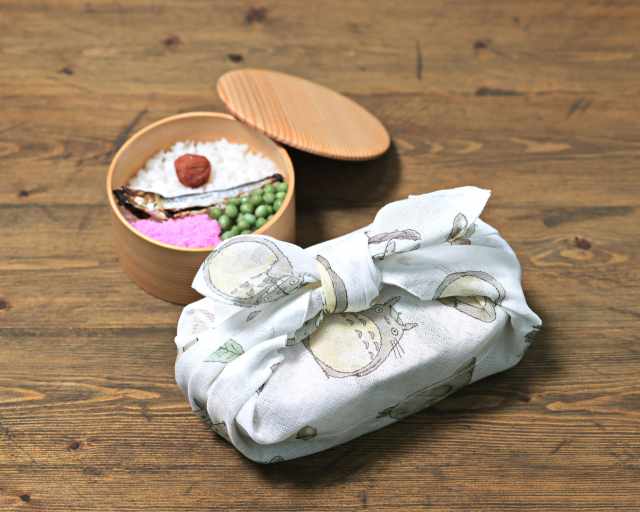
The most stunning item in the entire collection is the Inami Chukoku Camphor Totoro, which is priced at a whopping 330,000 yen (US$2,450).

The high price is warranted, though, as these hand-carved Totoro are a superb example of Inami Chokoku, a traditional craft with a long history that’s been handed down through generations in the Inami district of Nanto City, Toyama Prefecture. This woodcraft has been used to decorate shrines, temples and the transoms (horizontal beams that separate rooms) in Japanese houses since the Edo period (1603-1867).
Takaaki Tanaka, the owner of wood carving and lacquer workshop Tomoru Studio, is the craftsman in charge of making each Totoro by hand, using over 50 chisels in the process and imbibing each one with “wishes for the healthy growth of children and families“.
▼ Brought to life with wood from a single camphor tree, each one contains the natural scent of camphor, making you feel as if you’ve stepped into Totoro’s forest.
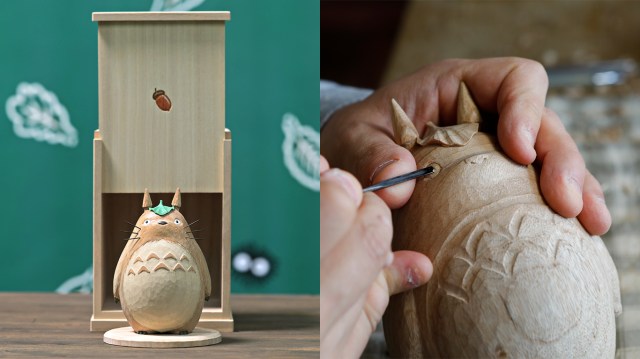
The beautiful video below shows the places and people behind each product in the collection, giving us a glimpse into the handcrafted process that makes every item incredibly special.
The hand-carved Totoro is only being produced in small quantities, so sales will be limited to lottery winners who apply at Nakagawa Masashichi Shoten’s online shop. The actual product will be exhibited at Nakagawa Masashichi Shoten Shibuya from 1 March, when the Studio Ghibli x Nakagawa Masashichi Shoten Collaboration will be released.
The entire range will be available at the Nakagawa Masashichi Shoten online store, but only the Yu Nakagawa branch and the Nakagawa Masashichi Shoten branch at Tokyo Station’s Gransta will have the whole collection in stock, as the company’s other 37 other brick-and-mortar stores won’t be stocking the dish towels.
It’s a truly beautiful range of goods that collectors will be scrambling to get their hands on, so mark your diaries for the first of March, and if you’ve got money left to spend, be sure to check out these amazing Ghibli desktop fountains too!
Related: Nakagawa Masashichi Shoten Store Locations
Source, images: PR Times
● Want to hear about SoraNews24’s latest articles as soon as they’re published? Follow us on Facebook and Twitter!
Credit:

0 comments:
Post a Comment